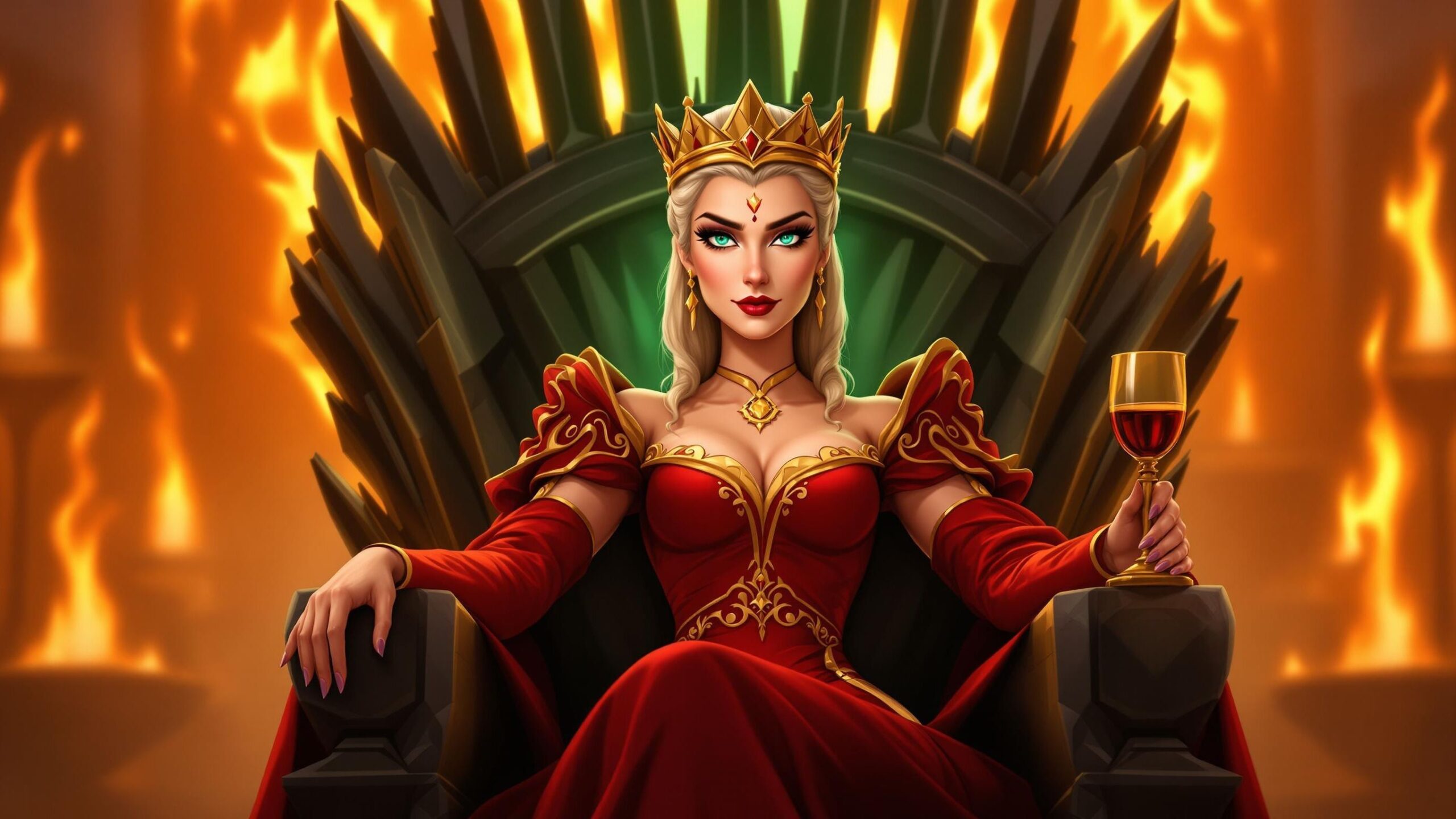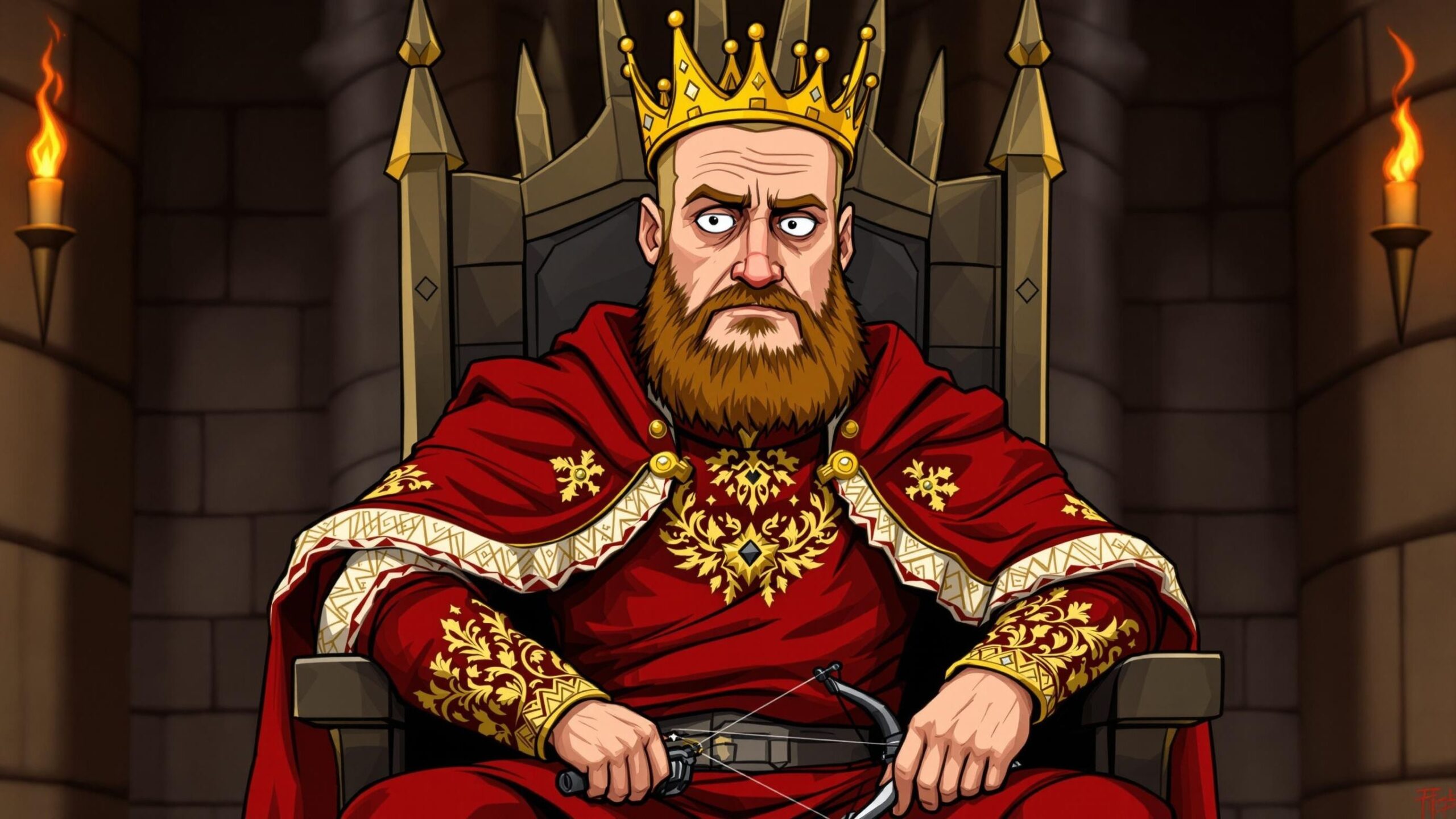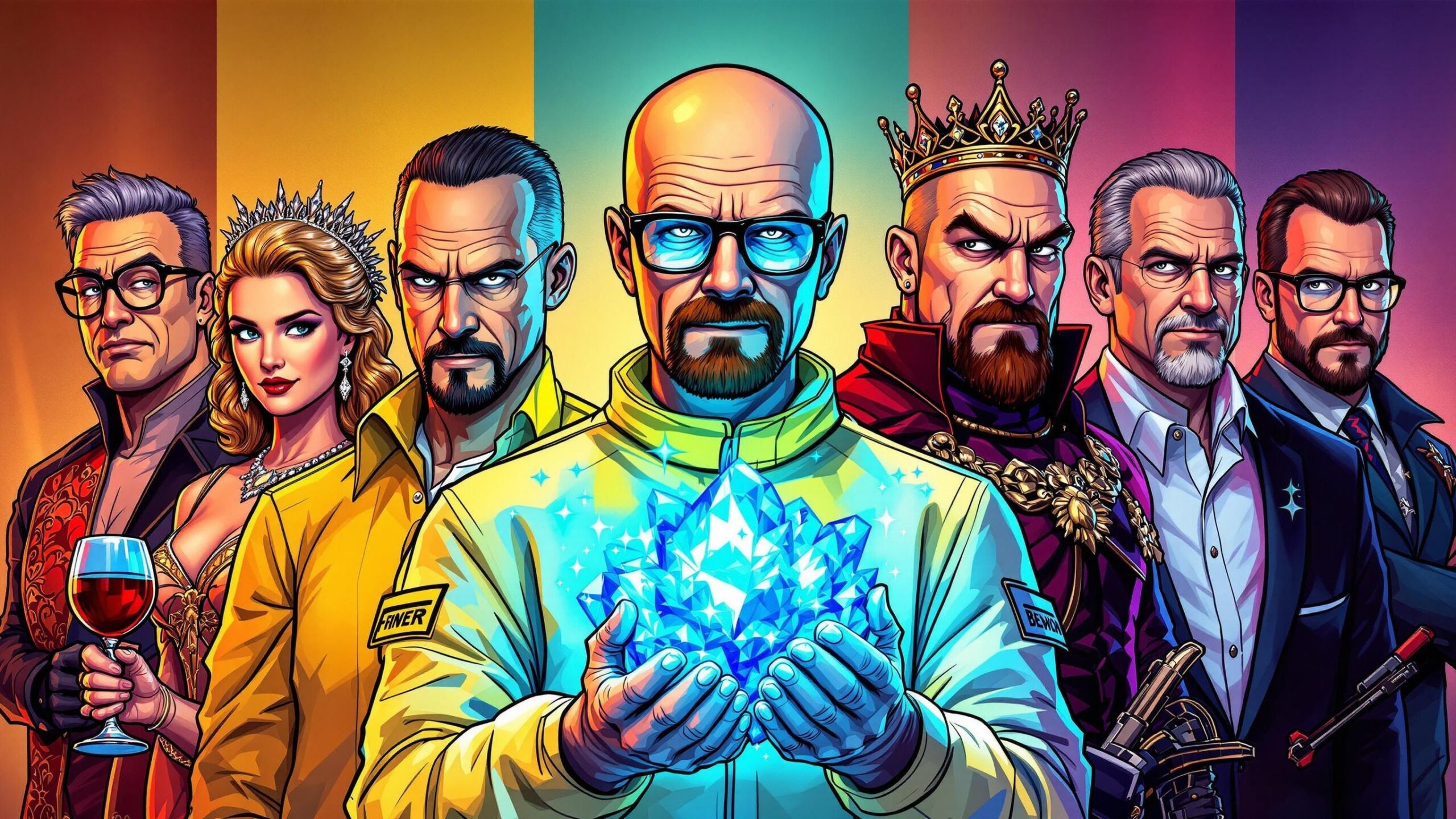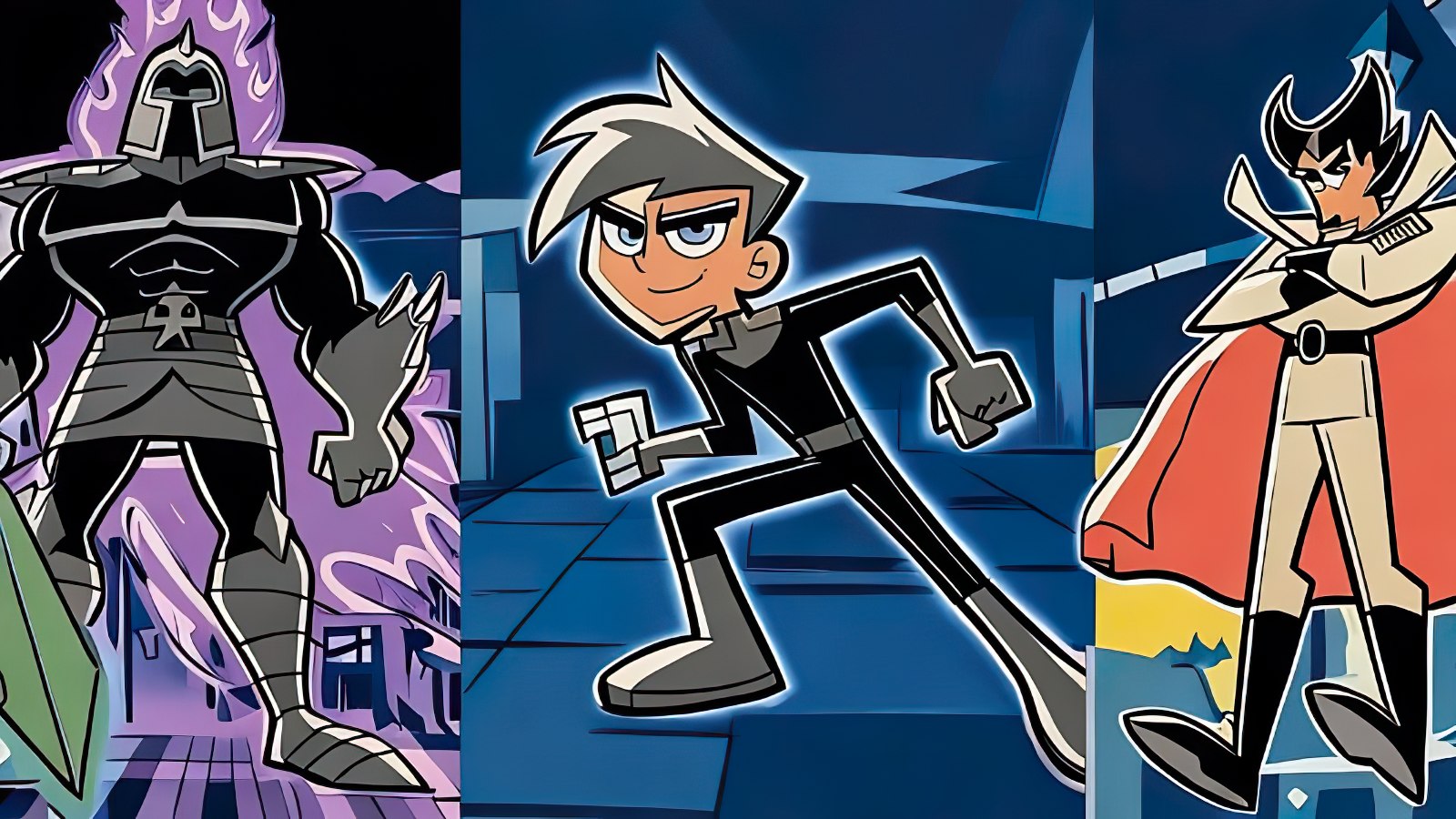Television villains come in all forms—some charismatic, others terrifying, many disturbingly relatable. They challenge our heroes, disrupt the status quo, and linger in our minds long after the credits roll. Whether they rule empires or manipulate from the shadows, great TV villains don’t just scare us—they fascinate us. Their motivations are layered, their impact lasting. In this list, we spotlight the top 10 villains in TV history—characters so compelling, they often stole the spotlight from the leads. These aren’t just bad guys. These are icons of evil, complexity, and unforgettable storytelling.
#1: Gus Fring
On Breaking Bad, Giancarlo Esposito’s portrayal of Gustavo “Gus” Fring elevated the TV villain archetype into something quietly chilling. On the surface, Gus is a soft-spoken, polite businessman who runs a successful fast-food chain, Los Pollos Hermanos. Beneath that calm facade, however, lies a ruthless drug kingpin capable of horrifying precision. Gus doesn’t lose his temper. He doesn’t scream. He simply eliminates threats with clinical efficiency. One of the most unforgettable scenes in the show’s history features Gus calmly removing his suit jacket, walking into a room, and slitting a man’s throat with a box cutter—then adjusting his tie. That contrast between civility and violence made him terrifying. Unlike many villains driven by chaos, Gus thrived on order. His backstory in Better Call Saul added even more complexity, revealing a man driven by vengeance and control. Gus Fring didn’t just challenge Walter White—he defined him, serving as the ultimate mirror for what Walter could become. In a world of unhinged criminals, Gus stood out by being the most composed—and the most dangerous.

#2: Cersei Lannister
Cersei Lannister from Game of Thrones is the kind of villain who doesn’t just play the game—she rewrites the rules. Portrayed by Lena Headey with icy brilliance, Cersei is one of the most cunning and ambitious characters in television history. As the Queen of the Seven Kingdoms, Cersei will do whatever it takes to secure power for herself and her children—even if it means betrayal, manipulation, or mass murder. Her ruthlessness culminates in the unforgettable Sept of Baelor explosion, where she annihilates her enemies in a single fiery blast, smiling with wine in hand as chaos erupts. Yet what makes Cersei compelling isn’t just her cruelty—it’s her pain. Her paranoia, her deep-seated fear of losing control, her love for her children—all make her more than a one-dimensional tyrant. She’s regal, strategic, and utterly unapologetic. As the political tides shifted, Cersei remained a constant force, her ambition smoldering even as the world crumbled around her. You might hate her—but you’ll never forget her.

#3: Joffrey Baratheon
If Cersei was the mastermind, Joffrey was her monstrous creation. Jack Gleeson’s portrayal of King Joffrey in Game of Thrones was so convincingly cruel that fans cheered when he finally met his end. From the moment he appears, Joffrey is a walking nightmare: entitled, sadistic, and completely devoid of empathy. He delights in humiliating others, especially Sansa Stark, and abuses power in ways that are disturbingly gleeful. What makes him uniquely villainous is his youth—he’s just a teenager, but his capacity for cruelty rivals that of tyrants. His death at the Purple Wedding was both satisfying and tragic, not because he deserved mercy, but because he was a symbol of unchecked privilege and inherited cruelty. Gleeson’s performance was so effective that the actor stepped away from Hollywood for years after the role. Joffrey was TV’s ultimate brat-king—a villain who made your blood boil every time he appeared on screen.
#4: Lorne Malvo
Billy Bob Thornton’s Lorne Malvo in Fargo (Season 1) is evil incarnate dressed in a parka. Malvo is less a person and more a force—an agent of chaos who delights in unraveling the moral fabric of everyone he encounters. He doesn’t just kill—he corrupts. His quiet voice and unnerving calm give him an almost supernatural presence, like the devil himself on a snowy Midwest road. From manipulating Lester Nygaard into committing murder to taunting law enforcement with cryptic riddles, Malvo operates without remorse or purpose. He’s not driven by money or revenge. He simply enjoys watching people fall. That existential dread makes him one of the most terrifying villains in recent TV history. Thornton’s controlled, eerie performance turns every line into a threat. Lorne Malvo doesn’t just make you fear what he’ll do—he makes you question what you might do in his presence. He’s not just a villain. He’s a test of the human soul.
#5: Ben Linus
In Lost, Michael Emerson’s Ben Linus was never meant to be a major character—but his performance was so magnetic, so unsettlingly brilliant, that Ben quickly became one of the show’s most complex and enduring villains. Introduced as a meek prisoner under the alias “Henry Gale,” Ben soon reveals himself to be the cunning and manipulative leader of the Others. He’s a master of psychological warfare, always five steps ahead of everyone else on the island. What made Ben unforgettable was the tension between his intellect and his emotional fragility. He wasn’t driven by greed or dominance—he was driven by purpose, by faith, and by a desperate need to matter. Whether ordering mass executions or tearfully mourning his daughter, Ben kept viewers guessing. Emerson’s calm, eerie delivery made even his quietest moments chilling. In the chaos of Lost, Ben Linus was the eye of the storm—a villain you wanted to hate, but couldn’t help trying to understand.
#6: The Trinity Killer (Arthur Mitchell)
John Lithgow’s portrayal of Arthur Mitchell, aka the Trinity Killer, in Dexter Season 4 is a masterclass in slow-burn horror. Arthur is the perfect monster hiding in plain sight: a seemingly loving family man, a devout churchgoer—and a methodical serial killer. His pattern is ritualistic, his kills ritualistically precise, and his facade disturbingly convincing. What sets Trinity apart is how terrifyingly normal he appears. Lithgow brought warmth and charm to the role, making his eventual eruptions into violence even more shocking. He wasn’t just a killer—he was a mirror for Dexter, forcing him to confront the lies he told himself about being able to balance a normal life with his dark urges. The season’s finale, where Dexter finds his wife Rita murdered in a bathtub by Trinity, remains one of the most shocking and devastating moments in TV history. Arthur Mitchell wasn’t just a villain—he was the monster under Dexter’s bed. And he changed everything.
#7: Kilgrave
In Jessica Jones, David Tennant’s Kilgrave is a villain unlike any other in the Marvel universe: a man who can control minds and takes perverse pleasure in using that power to dominate others. With a simple command, he can force someone to jump off a building, commit a murder, or betray the people they love. But what makes Kilgrave especially terrifying is that he genuinely believes he’s the victim—that Jessica should love him because he “gave her everything.” Tennant plays him with a chilling mix of charm, narcissism, and menace, making the character both compelling and revolting. The psychological trauma he inflicts on Jessica elevates the story beyond comic book conflict into a raw, real exploration of abuse and control. Kilgrave doesn’t want to destroy cities—he wants to own people. And that, in many ways, is far more frightening. He’s a supervillain for the #MeToo era: polished, persuasive, and utterly monstrous.
#8: Ramsay Bolton
Just when you thought Game of Thrones couldn’t produce a villain worse than Joffrey, along came Ramsay Bolton. Played with sadistic glee by Iwan Rheon, Ramsay didn’t just kill—he enjoyed inflicting prolonged pain, both physical and psychological. Whether torturing Theon Greyjoy into becoming Reek or unleashing his hounds on defenseless victims, Ramsay was pure cruelty. Unlike Joffrey, who was a petulant child, Ramsay was calculating. He was a predator. His treatment of Sansa Stark remains one of the most disturbing storylines in the series, and his calm demeanor only made his actions more horrifying. Yet he was no fool—Ramsay knew how to manipulate and survive. For a time, it seemed like no one could stop him. His eventual death at the hands of his own dogs was poetic justice, but it didn’t erase the damage he did. Ramsay Bolton wasn’t just a villain. He was the nightmare that kept Westeros—and its viewers—on edge.
#9: Negan
When Negan made his debut in The Walking Dead, he didn’t just enter the show—he took it over. Played with brutal charisma by Jeffrey Dean Morgan, Negan introduced himself by bludgeoning two beloved characters to death with a barbed-wire bat named Lucille. It was a line-crossing moment for the series, and Negan became instantly iconic. His grin, his swagger, and his relentless taunting made him both magnetic and terrifying. But Negan wasn’t just a brute. He was a tactician. He ran the Saviors with brutal discipline, convincing others to work for him under fear of death—or worse. Yet over time, the show added depth to his character, revealing a man shaped by loss, trying to forge order in a broken world. Unlike many villains, Negan stuck around long enough to evolve. And in doing so, he became one of the few TV villains to flirt with redemption—without ever fully shedding the monster within.
#10: Livia Soprano
In The Sopranos, Tony Soprano may have been the mob boss, but his mother Livia was the most manipulative force in his life. Played with icy venom by Nancy Marchand, Livia Soprano was the ultimate emotional terrorist—guilt-tripping, gaslighting, and undermining everyone around her. Her passive-aggressive quips were more lethal than any mob hit. “Oh, poor you,” she would say with dripping sarcasm, weaponizing victimhood to twist her son’s emotions into knots. What made Livia so terrifying was how real she felt—she wasn’t a grandiose villain with a master plan. She was a bitter, resentful matriarch who knew exactly how to push every button in the room. Livia laid the emotional groundwork for Tony’s psychological unraveling. She wasn’t physically powerful, but she didn’t need to be. She ruled through poison words and carefully placed landmines. Livia Soprano was the kind of villain who didn’t raise her voice—but left ruin in her wake.
TV’s greatest villains aren’t monsters for the sake of shock—they’re unforgettable because they reflect the darkest parts of ourselves. They test our morality, push our heroes to their limits, and often steal the spotlight. From criminal masterminds to manipulative matriarchs, these characters proved that evil isn’t always loud—it can be calculating, charming, and even seductive. What makes them legendary isn’t just what they did, but how they made us feel while watching. These 10 villains didn’t just terrorize their worlds—they took over ours.




